Today I’m plugging my new book Red Labyrinth, published by Lume Books on 14th December (it’s up for pre-order now).
I’m also, while we’re on the subject of books, reviewing a few police-themed titles I’ve enjoyed. So fear not, the plug is short but sweet. I’m classy like that.
Red Labyrinth is an alternative-history thriller, in the spirit of SS-GB and Fatherland – except this time it’s the Soviet Union occupying Britain, a consequence of His Majesty’s Government making an alliance with Nazi Germany in 1940.
It’s 1957: spies cops, resistance fighters and politburo apparatchiks plot and scheme. Meanwhile, the new Socialist Republic of Great Britain edges towards civil unrest. Can British-born KGB captain Thomas Fairburn prevent a Hungarian Uprising-level disaster happening in London?
Red Labyrinth is twisty, deeply-researched and has shoot-outs, spying, a what-if? look at Kim Philby and a dash of dark humour. Thomas Fairburn’s sidekick is a world-weary ex-flying squad copper called Sid. Sid finds himself, to his surprise, a secret policeman in Soviet Britain. He’s partly inspired by every old-school, sweaty DS I ever met. I particularly enjoyed writing his character.
That’s the plug. Honest. Now, onto some book reviews that might interest you…
A blatant plug
Christmas is on the horizon – an ideal time to indulge in some hygge-style self-care. A cup of tea in your PJs, Kindle ready.
But what to read?
Here’s my review of some books (both fiction and non-fiction) with a police and law enforcement slant. All are worthy of your consideration. Furthermore, several were written by former cops.
I should mention now, I’m NOT a big fan of police procedurals. As an ex-policeman I find they’re often too much of a busman’s holiday. I also get irked by technical errors (I’ve listed some of my bugbears here) and improbably posh detectives solving murders in picture postcard villages. Instead, I’m drawn to grittier crime stories and pulpy, noirish thrillers. Anything with a twist is likely to pique my interest – especially a historical setting, or something with an espionage angle (as you may have guessed). Non-fiction? Anything well-written, candid and with a compelling story.
And so, without any further ado…
Philip Kerr - The Bernie Gunther series
Bernie Gunther’s my favourite gumshoe – a hardboiled Marlow-esque PI, except he’s sleuthing around 1930s Berlin, not Los Angeles.
Gunther resigns from the increasingly Nazi-dominated Kriminalpolizei due to his support for the left-of-centre SPD. He becomes a private eye, working missing persons cases generated by the Nazis. So begins ‘March Violets’ the first Gunther novel (published in 1989).
Witty, jaded and stylish, it combines classic private eye tropes with the darkest chapter of modern history. In the wrong hands, this could be tasteless. In Kerr’s, it manifestly isn’t. As the series progresses, Bernie finds himself reluctantly drafted back into the police - and a black SS uniform. His detective skills – ironically borne of an open-mindedness that abhors fascism – bring him to the attention of senior Nazis keen to exploit his talents. Later stories take us to Cuba and Latin America in the 50s and 60s.
Sadly Philip Kerr sadly died in 2018, aged only 62, from cancer.
Joseph Wambaugh - The Choir Boys
In the 1970s, Wambaugh was a serving LAPD detective. Then, after writing a bestselling novel, he quit to write full time. Cannily, Wambaugh decided it was important to keep abreast of all things policing, so hosted regular lunches for serving officers to gather fresh material.
The LAPD brass hated Wambaugh’s gritty stories of street policing – prior to Wambaugh, too many fictional cops were paragons of virtue. The Choirboys (1975) is an outrageously dark comedy (subsequently adapted into a successful movie). The protagonists are ten seedy, jaded patrolmen who work permanent nightshifts. Off-duty, they gather in an LA park to get plastered, let off steam and carouse with two willing cop-groupies. The characters include boozy twenty-year veteran ‘Spermwhale’ and the brutal racist ‘Roscoe’ Rules.
Yes, it’s a book of its time. Yet the choirboys’ burnt-out loathing of their seniors, and the psychological impact of street work, still resonates with contemporary policing.
Charlie Owen – Horse’s Arse
Charlie Owen was a Pc in the north of England, finally retiring as an inspector in the Met. Real-life experience is writ large on every page – this is a very English take on The Choirboys. Saltier than a bag of flat-roof estate pub crisps, the book is a hoot.
It’s the 1970s and Hanstead New Town (divisional code ‘HA’, known as ‘Horse’s Arse’) is a punishment posting for Greater Manchester Police’s most troublesome coppers. The town’s a toilet. The locals are vile (thoroughly deserving the misfits sent to police them). Despite this – or probably because of it – Horse’s Arse is very, very funny. I doubt it would survive first contact with a sensitivity reader nowadays.
Coppers of this vintage have assured me ‘Horse’s Arse’ reads more like a documentary than a crime novel; casual violence, fit-ups, cruelly-realised pranks, frontier-style justice and a perpetually randy police dog – Owen makes you feel like you’re being spun a tale at a boozy pub lock-in. And, if you enjoyed the ride, there are three more books in the series to enjoy.
Mark Timlin - The Nick Sharman series
Mark Timlin was never a copper – in fact, he spent the 1970s working as a roadie for rock bands. Not that it matters; the Sharman books, set mainly in the late 1980s and 1990’s, aren’t meant to be realistic. They’re meant to be lairy, in-your-face crime fables set in Sarf Lahnduuun.
Nick Sharman’s an ex-DS at Brixton nick, a sketchy character with a taste for exhibit-store cocaine. Luckily, before the rubber heelers strike, he’s accidentally shot in the foot and invalided out of the Met. Setting himself up as Tulse Hill’s answer to Phillip Marlowe, Sharman’s usually embroiled in capers involving a cast of larger-than-life characters – dodgy businessmen, villains of every stripe, an exotic collection of femmes fatale, rock stars (where Timlin’s real-world experience shines) and coppers (bent or otherwise).
If you enjoy fully-caffeinated pulp fiction, these stories are like crack – Sharman’s an aficionado of narcotics, Paul Smith suits, strippers, Thai food, car chases and Magnum Python handguns. You might also remember the 1995 TV series Sharman, starring Clive Owen. Which is fun, but not a patch on the source material.
Ben Aaronovitch – Rivers of London
And now for something completely different. ‘Rivers of London’ is, I suppose, a snarky (adult) cop-themed mashup of Harry Potter with a splash of Terry Pratchett.
Bear with me – this series is a massive hit for good reason. The genre’s ‘urban fantasy’, i.e. near-reality with a magical twist. In this case, Pc Peter Grant finds himself (having taken a statement from a ghost – I’m sure odder stuff has occurred near Charing Cross nick) involved in a department of the Met dedicated to investigating mystical crime. Fear not, though, the Met’s arcane functions suffer from the same bureaucracy as the rest of the Job. Much of the fun comes from the police trying to shoehorn the incredible into everyday mundanity.
Cue all sorts of strange adventures, as Grant finds himself a trainee detective and apprentice to a sorcerous DCI. Ben Aaronovitch might not be a cop, but he must know a few with lines like this; ‘You can always tell an old cop car because however hard you scrub, it always smells of old cop.’
Matt Johnson with John Murray – No Ordinary Day: Espionage, betrayal, terrorism and corruption - the truth behind the murder of WPC Yvonne Fletcher
Matt Johnson is the first of three ex-police authors who make up my non-fiction recommendations. Along with John Murray, Johnson (now an accomplished thriller writer) was a colleague of 25-year-old Pc Yvonne Fletcher. Yvonne was shot dead policing a demonstration outside the Libyan Embassy in 1984; the suspects two Libyan gunmen hiding inside.
‘No Ordinary Day’ describes Murray and Johnson’s quest to find out what really happened. The-then Pc Murray was there when Yvonne was shot, swearing he’d never rest until he discovered why.
What follows reads like a conspiracy thriller – except it’s true. I won’t spoil you, but the British government’s reticence in seeking justice for Yvonne involves shameful levels of skulduggery masquerading as realpolitik. It also, disturbingly, shows how little justice really means to senior intelligence officers, politicians and civil servants.
Tony Long – Lethal Force
I’m friends with one of Tony Long’s former SO19 partners, so I’ve met the man a couple of times. Tony’s unassuming and friendly, unlike the macho stereotype often attached to firearms officers. This is his story, from joining the Met in the 1970s to being cleared of murder charges at the Old Bailey in 2015 (over the Azelle Rodney shooting ten years earlier).
‘Lethal Force’ is also a history of how the Met’s firearms capabilities developed in the face of new operational – and legal – challenges. From an experimental unit in a traditionally unarmed force, through to the introduction of 24/7 armed response vehicles and specialist firearms teams, Tony was there.
There’s amusing job banter, some derring-do and more than a few sombre moments. In my view, any police officer considering applying for a firearms ticket should read this book. I’d also recommend it to critics of police firearms operations, the people who judge ‘shots’ from the comfort of their sofas, or behind keyboards (or, indeed, in Judge’s chambers).
Harry Keeble & Kris Hollington – Crack House
I know Harry too (we worked together on counterterrorism in the mid-2000s). Before then, he was a detective on child protection, subsequently writing several bestsellers about his experiences. Back in In 2000, though, Harry was a drug squad DS in Haringey. This account describes how his team took down a hundred crack houses in… twelve months.
Occasionally reminiscent of a British version of ‘The Wire’, Harry describes how his squad relentlessly targeted dealers flooding the streets with cheap crack cocaine. The result? The year after the operation, there were no drugs-related murders in Haringey. Zero. That’s impressive for a tough, high-crime, north London borough - his team absolutely saved lives.
Harry’s book also offers food for thought, whichever side of the drugs legalisation debate you find yourself. For me, as an ex-copper whose career wasn’t overly focussed on narcotics, I found the technical aspects of the book especially engrossing – there’s a trainspotter’s level of detail. More fast-paced than the average true crime story, I think Crack House is Harry’s best work.
I hope you found something here to pique your interest. Oh, and if I haven’t mentioned it, I’ve got a new book out for pre-order called Red Labyrinth!
Cheers,
Dom.

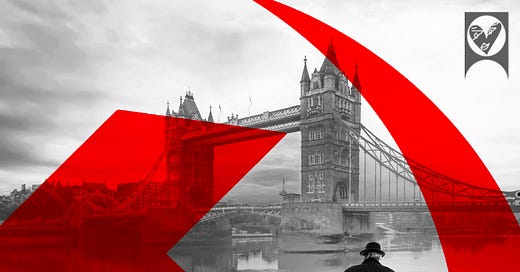




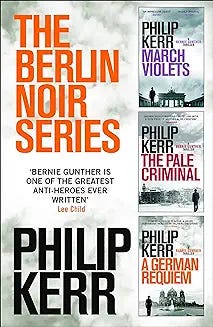
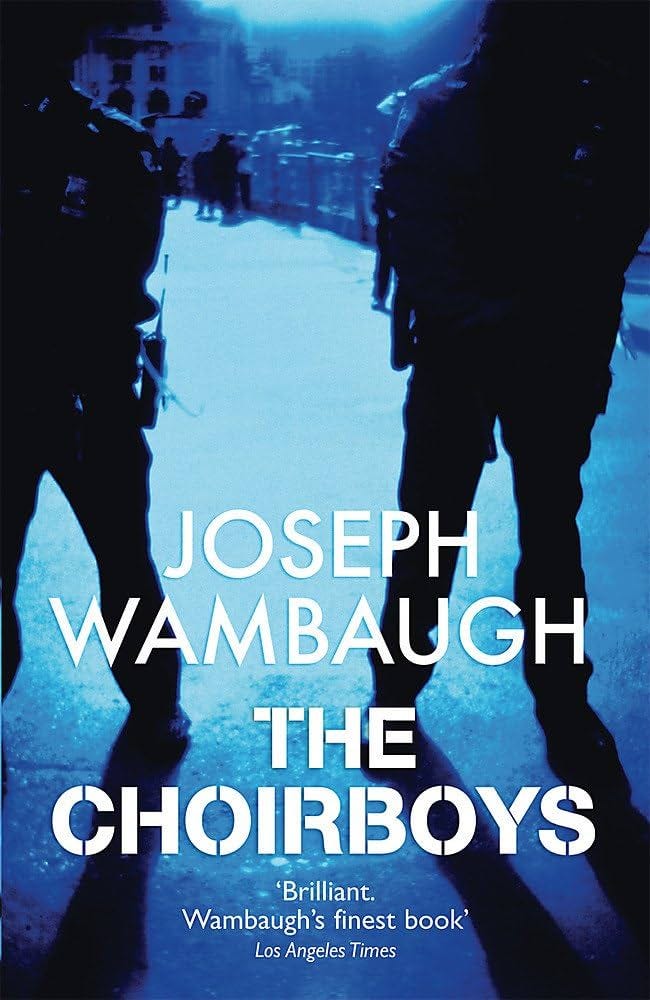
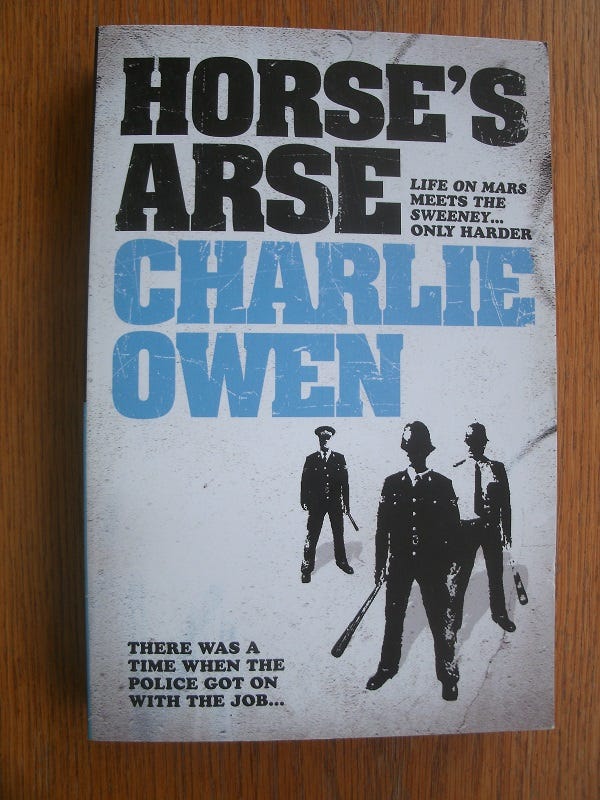
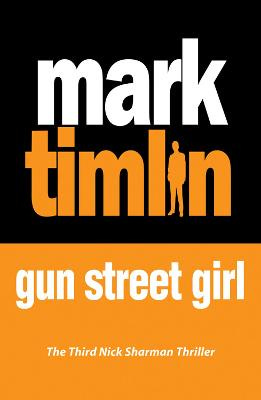
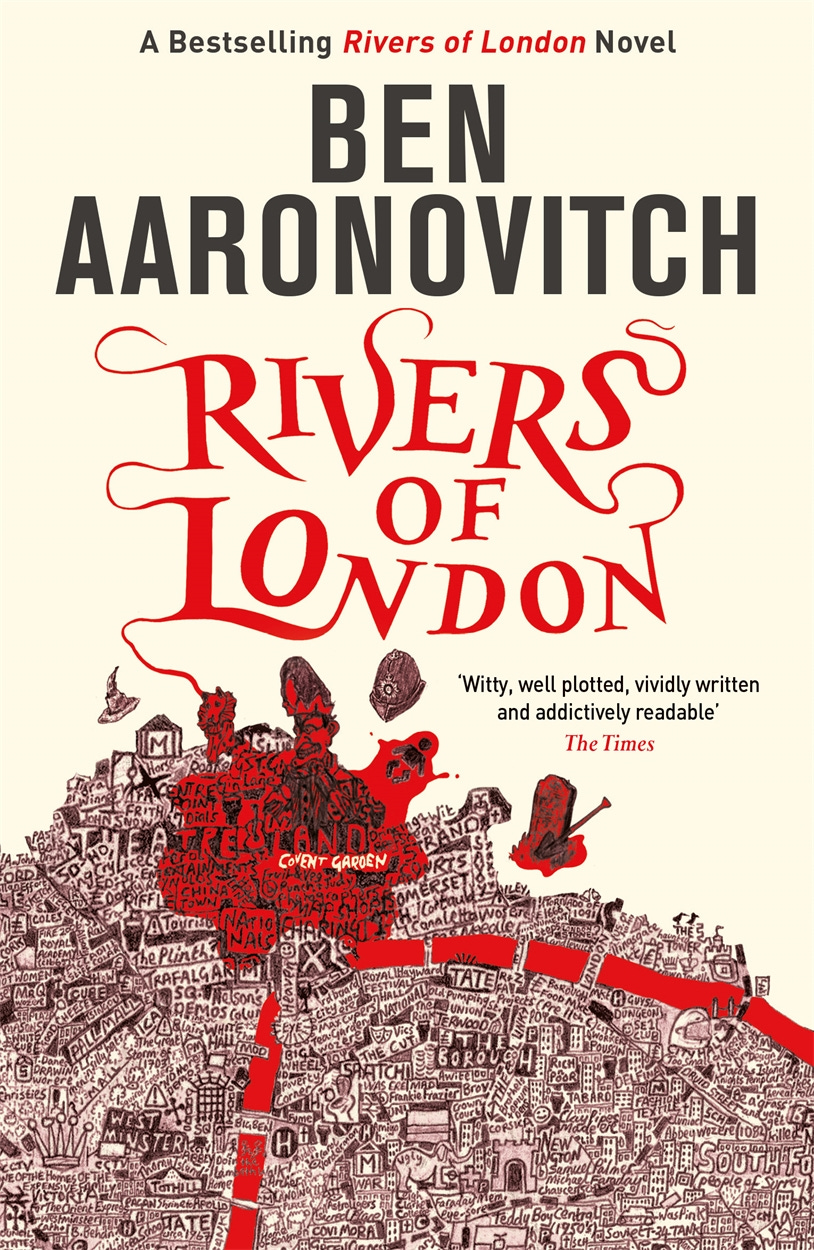
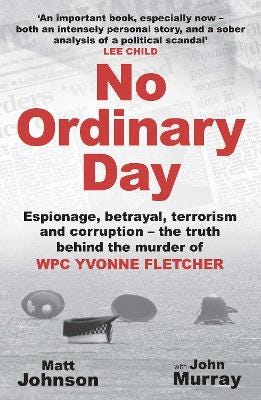
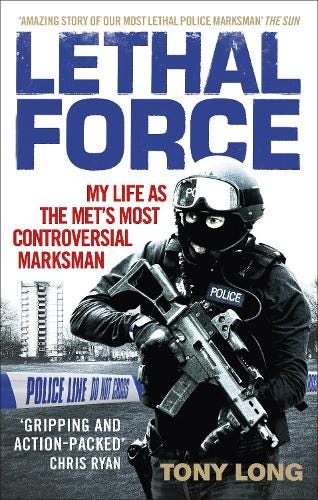
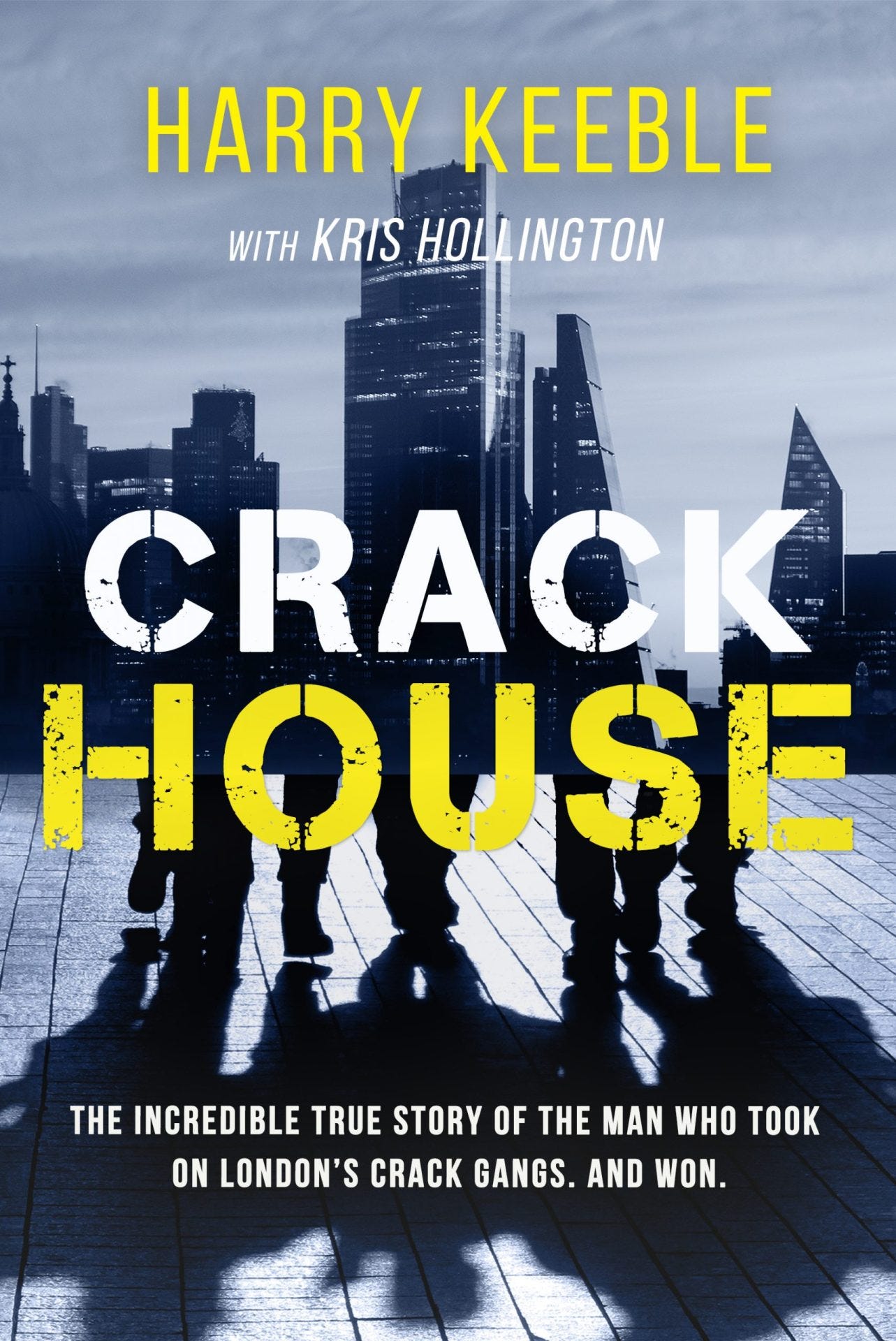
To this list i would add Bryant & May - The Burning Man: Amazon.co.uk: Fowler, Christopher https://www.amazon.co.uk/Bryant-May-Burning-Christopher-Fowler/dp/0857522043
The Albert Smith series by Steve Higgs is also hilarious - the insights of the rejected police dog Rex Harrison make it a good read.